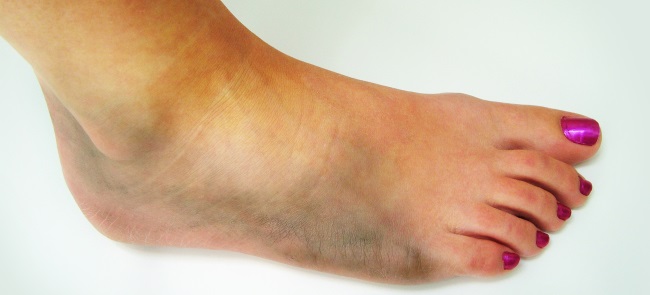A foot fracture can occur during a car accident, sudden movements, or simple trip and fall injury. Sometimes overuse and repetitive movements can lead to minor stress fractures, especially in the metatarsals. Early foot fracture symptoms include foot pain, swelling, and reduced movement.
Our customized foot fracture treatment aligns individuals’ needs and movement goals for optimal recovery.
Overview: Foot Fracture
Foot fractures are a result of broken bones and cartilages. They typically occur when repeated force or a sudden trauma affects the tarsals (bones in the midfoot), metatarsals (bones connected to the mid-foot), calcaneus (heel bone), and the ankle joint. These fractures vary depending on the affected site; they can be tiny cracks or severe breaks.
You might feel excruciating foot pain when the injury occurs. It’s followed by swelling, redness, and tenderness. You can also experience difficulty in movement and mobility, which decreased your quality of life.
Early intervention mitigates the risk of chronic foot pain and medical complications.
Foot Fracture Symptoms
Here are some common symptoms and signs of a fractured foot:
- Throbbing foot pain felt when your foot gets fractured
- Foot pain escalates when you move
- Swelling and tenderness
- Redness and bruising in the fractured site
- Visible deformity
- Reduced range of motion and difficulty in walking/standing/climbing stairs
- The broken foot cannot carry your weight

What’s more? Without intervention, foot fractures can create medical complications in the future. Associated problems include damaged nerves (or blood vessels) due to restricted blood flow. Untreated fractures can increase the risk of bone diseases such as bone infection (osteomyelitis) or arthritis (osteoarthritis).
Foot Fracture Causes
Typical Foot Fracture Causes:
- Trip and fall accidents where you land on your feet
- Missteps that might cause you to trip or stub toes on furniture
- When a heavy object falls on your foot
- Foot injuries caused by car accidents can lead to fractures
- Stress fractures caused by overuse (or repetitive movements) that place undue pressure on the weight-bearing bones of your foot
Other risk factors include:
- High-impact sports (i.e. gymnastics, football, basketball, tennis, and soccer) where collisions, fall injuries, and pivoting can result in foot fractures
- Improper footwear in occupational settings, especially construction sites
- Work hazards, especially for professionals that work in construction sites, workshops, garages, etc.
- Reduced bone density (osteoporosis) can increase the risk of foot injuries
Foot Fracture Diagnosis
We perform a detailed physical evaluation during the first appointment. It includes mobility and alignment assessment along with questions related to your everyday activities. Your physical therapist will compare current symptoms and intensity of foot pain with medical reports.
Apart from this, we observe your foot strength and mobility by asking you to perform specific tasks (including walking and standing). Our physical therapists are trained to determine the severity of your situation through your gait and balance. We use this information to customize your physical therapy for foot pain to optimize recovery.
Foot Fracture Treatment
Physical therapists promote the natural recovery process for broken bones. These therapy sessions reduce stiff muscles and restore the optimal level of functioning. Some therapeutic techniques reduce foot pain by providing comfort and relaxation. These include soft tissue massages and electric stimulation (with Neubie utilizing non-weight bearing water baths) to accelerate bone healing.
Our personalized foot fracture treatment plans vary depending on the location of your injury and the severity of the condition. We teach home exercises such as strengthening and stretching routines to improve foot flexibility and mobility.
Athletes will learn how to perform specific movements on the field. Preventive techniques mitigate the risk of recurring foot pain and injuries. We might also recommend appropriate footwear depending on your sport (or work environment).
However, if we feel your foot fracture warrants additional follow-up, we will refer you immediately to a physician.
Moreover, our personalized physical therapy for foot fractures has many long-term benefits. It aims to provide complete relief while restoring balance, coordination, and unrestricted mobility in the lower limbs.
If you want to learn more about the causes of foot fracture and effective treatment, give us a call @ 201-773-8851 or book an initial appointment today.

